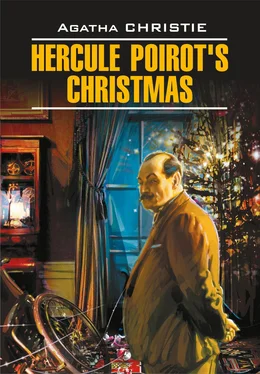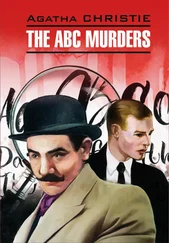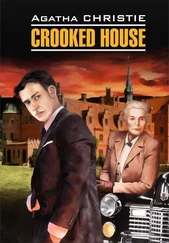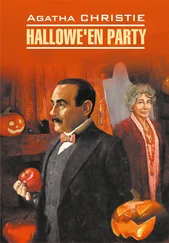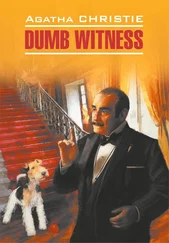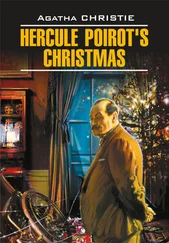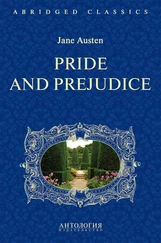‘But such an idea was unconvincing in the extreme, since the noise of the furniture would give the alarm and the murderer would thereby have very little time to make his exit. It would surely be to anyone’s advantage to cut Simeon Lee’s throat as quietly as possible.
‘Another extraordinary point was the turning of the key in the lock from the outside. Again, there seemed no reason for such a proceeding. It could not suggest suicide, since nothing in the death itself accorded with suicide. It was not to suggest escape through the windows – for those windows were so arranged that escape that way was impossible! Moreover, once again, it involved time. Time which must be precious to the murderer!
‘There was one other incomprehensible thing – a piece of rubber cut from Simeon Lee’s spongebag and a small wooden peg shown to me by Superintendent Sugden. These had been picked up from the floor by one of the persons who first entered the room. There again – these things did not make sense! They meant exactly nothing at all! Yet they had been there.
‘The crime, you perceive, is becoming increasingly incomprehensible. It has no order, no method – enfin [422] enfin – ( фр. ) в конце концов
, it is not reasonable.
‘And now we come to a further difficulty. Superintendent Sugden was sent for by the dead man; a robbery was reported to him, and he was asked to return an hour and a half later.Why? If it is because Simeon Lee suspected his granddaughter or some other member of the family, why does he not ask Superintendent Sugden to wait downstairs while he has his interview straight away with the suspected party? With the superintendent actually in the house, his lever over the guilty person would have been much stronger.
‘So now we arrive at the point where not only the behaviour of the murderer is extraordinary, but the behaviour of Simeon Lee also is extraordinary!
‘And I say to myself: “This thing is all wrong!” Why? Because we are looking at it from the wrong angle. We are looking at it from the angle that the murderer wants us to look at it…
‘We have three things that do not make sense: the struggle, the turned key, and the snip of rubber. But there must be some way of looking at those three things which would make sense! And I empty my mind blank and forget the circumstances of the crime and take these things on their own merits [423] take these things on their own merits – ( зд. ) смотрю на все непредвзято
. I say – a struggle. What does that suggest? Violence – breakage – noise… The key? Why does one turn a key? So that no one shall enter? But the key did not prevent that, since the door was broken down almost immediately. To keep someone in? To keep someone out? A snip of rubber? I say to myself: “A little piece of a spongebag is a little piece of a spongebag, and that is all!”
‘So you would say there is nothing there – and yet that is not strictly true, for three impressions remain: noise – seclusion – blankness…
‘Do they fit with either of my two possibles? No, they do not. To both Alfred Lee and Hilda Lee a quiet murder would have been infinitely preferable, to have wasted time in locking the door from the outside is absurd, and the little piece of spongebag means yet once more – nothing at all!
‘And yet I have very strongly the feeling that there is nothing absurd about this crime – that it is on the contrary, very well planned and admirably executed. That is has, in fact, succeeded! Therefore that everything that has happened was meant [424] everything that has happened was meant – ( зд. ) все, что произошло, именно так и было задумано изначально
…
‘And then, going over it again, I got my first glimmer of light…
‘Blood – so much blood – blood everywhere… An insistence on blood – fresh, wet, gleaming blood… So much blood – too much blood…
‘And a second thought comes with that. This is a crime of blood – it is in the blood. It is Simeon Lee’s own blood that rises up against him…’
Hercule Poirot leaned forward.
‘The two most valuable clues in this case were uttered quite unconsciously by two different people. The first was when Mrs Alfred Lee quoted a line from Macbeth : “Who would have thought the old man to have had so much blood in him?” The other was a phrase uttered by Tressilian, the butler. He described how he felt dazed and things seemed to be happening that had happened before. It was a very simple occurrence that gave him that strange feeling. He heard a ring at the bell and went to open the door to Harry Lee, and the next day he did the same thing to Stephen Farr.
‘Now why did he have that feeling? Look at Harry Lee and Stephen Farrand and you will see why. They are astoundingly alike! That was why opening the door to Stephen Farr was just like opening the door to Harry Lee. It might almost have been the same man standing there. And then, only today, Tressilian mentioned that he was always getting muddled between people. No wonder! Stephen Farr has a high-bridged nose, a habit of throwing his head back when he laughs, and a trick of stroking his jaw with his forefinger. Look long and earnestly at the portrait of Simeon Lee as a young man and you see not only Harry Lee, but Stephen Farr…’
Stephen moved. His chair creaked. Poirot said: ‘Remember that outburst of Simeon Lee, his tirade against his family. He said, you remember it, that he would swear he had better sons born the wrong side of the blanket [425] he had better sons born the wrong side of the blanket – ( разг. ) у него есть сыновья и получше, но рожденные вне брака (на стороне)
. We are back again at the character of Simeon Lee. Simeon Lee, who was successful with women and who broke his wife’s heart! Simeon Lee, who boasted to Pilar that he might have a bodyguard of sons almost the same age! So I came to this conclusion: Simeon Lee had not only his legitimate family in the house, but an unacknowledged and unrecognized son of his own blood.’
Stephen got to his feet. Poirot said: ‘That was your real reason, wasn’t it? Not that pretty romance of the girl you met in the train! You were coming here before you met her. Coming to see what kind of a man your father was…’
Stephen had gone dead white. He said, and his voice was broken and husky: ‘Yes, I’ve always wondered… Mother spoke about him sometimes. It grew into a kind of obsession with me – to see what he was like! I made a bit of money [426] made a bit of money – ( разг. ) заработал немного денег
and I came to England. I wasn’t going to let him know who I was. I pretended to be old Eb’s son. I came here for one reason only – to see the man who was my father…’
Superintendent Sugden said in almost a whisper: ‘Lord, I’ve been blind… I can see it now. Twice I’ve taken you for Mr Harry Lee and then seen my mistake, and yet I never guessed [427] yet I never guessed – ( разг. ) я так и не догадался
!’
He turned on Pilar. ‘That was it, wasn’t it? It was Stephen Farr you saw standing outside that door? You hesitated, I remember, and looked at him before you said it was a woman. It was Farr you saw, and you weren’t going to give him away.’
There was a gentle rustle. Hilda Lee’s deep voice spoke: ‘No,’ she said. ‘You’re wrong. It was I whom Pilar saw…’
Poirot said: ‘You, madame? Yes, I thought so…’
Hilda said quietly: ‘Self-preservation is a curious thing. I wouldn’t believe I could be such a coward. To keep silence just because I was afraid!’
Читать дальше
Конец ознакомительного отрывка
Купить книгу
